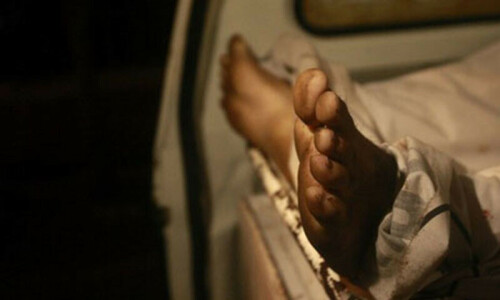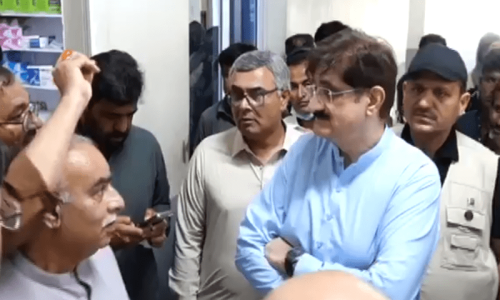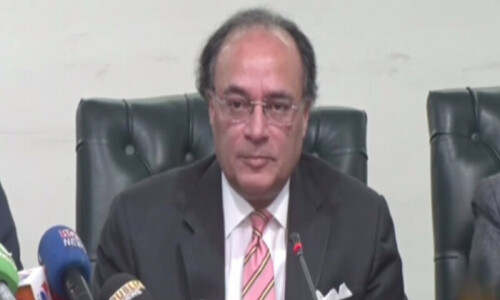At the best of times, there is chaos at Jinnah Hospital’s emergency ward, and since Karachi is no stranger to violence and accidents, the ward is the busiest in the country.
Amidst the gurneys being wheeled in, Edhi ambulance sirens blaring, relatives wailing, the doctors and nurses calmly carry on their work. It is best to check in stereotypes of government hospitals at the entrance because the ward defies what you and I have come to believe is the norm at such hospitals.
The ward is clean, the instruments are hygienic, the sheets are washed, the attendants are attentive and there is order amongst the chaos. At the centre of it all issuing instructions patiently as she hears the concerns of doctors, patients and their relatives is a formidable woman, Dr Seemi Jamali, shattering yet more stereotypes.
Dr Jamali knew at the age of six that she wanted to be a doctor; it had been her dying mother’s wish and she wanted to make her dream come true. Her journey took off in Nawabshah where she attended the medical school and years later ended up at Jinnah hospital at the behest of her father, who wanted her to work for a government institution.
Also see: In Karachi, hospitals are as dangerous as its streets
As she began work at the hospital, she became determined to turn around the emergency ward.
“We started with small things which led us to big things,” she tells us, “We implemented World Health Organisation rules, adopted the way they gave vaccines, raised money to better our facilities and slowly we began to make the changes we desired.”
Jinnah Hospital’s emergency ward has its own perils, the violence that affects us all every day doesn’t end at its doors.
“There have been various incidents over here.” Dr Jamali tells us. “Often, mobs come brandishing weapons and they are always ready to attack people. We have experienced terrorist attacks over here and we are not trained enough to deal with this kind of stuff, we are trained to be doctors, and that is what we do. We don’t know how to deal with people who are terrorists.”
Dr Jamali was on duty the day the bomb blast occurred at the doors of the hospital in February 2010.
“Our lives are always in danger, and we have often seen our colleagues lose theirs.”
She was injured in a grenade attack at the hospital but that did not deter her or her band of very brave doctors.
“This is not easy work, it’s a 24-hour duty but when a person really connects with his work like I do, then it all seems worthwhile.”
Funnily enough, it’s not the violence that scares Seemi, it’s reptiles. “I am not afraid of much but I am really afraid of lizards,” she tells us with a smile.
In a job like this, one always has to make sacrifices. Dr Jamali has often had to forego time with her family to meet the demands of her work.
“Recently, my younger son has asked me to stay home. When he watches breaking news on television, it affects him because he knows what happens in the city affects my work directly,” she says.
As the day progresses, the media require her to give statements about the latest victims of an attack, relatives demand her attention to know the well-being of their siblings and through it all, Dr Jamali seems unfazed, she attends to each one of them and turns to us to say.
Also read: The real hero: Abid Farooq risks all to defuse bombs
“I am very proud of the fact that I am a woman, because I believe that I am doing something which would be hard for a man to do. I have been spared from violence directly because I am a woman. A man, perhaps, would not have been so lucky.
"If given the chance, I would become a doctor again, I would hope to do a better job than I did this time. I saw some shortcomings within me, and I would hope to avoid them if given a chance again.”
Dr Jamali leads from the front in one of the most implausible of places. Next time you visit, drop in to see which stereotype she can shatter for you!
Published in Dawn, Sunday Magazine, January 18th, 2015
On a mobile phone? Get the Dawn Mobile App: Apple Store | Google Play
















































